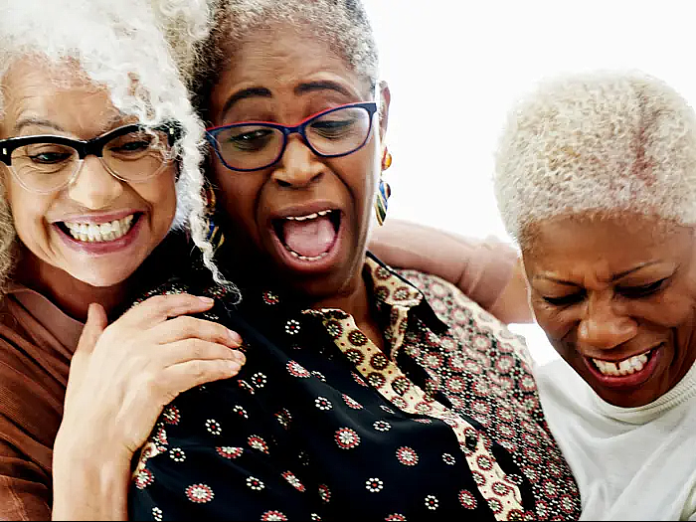While losing friends as you get older is a common and difficult reality for many, seniors who make the effort to stay social reap the benefits of friendship. Seasoned folks with social support and meaningful relationships are more likely to live longer and are at lower risk for long-term health problems such as obesity, high blood pressure, and heart disease. Researchers have also discovered that the importance of friendship increases with age and the key is to keep friendships in good order.
A 2021 American Perspectives Survey found that childhood friendships are particularly prevalent among Black Americans. Nearly eight in 10 (78 percent) Black Americans report having a friend whom they have known since childhood. These types of friendships are significantly less common among White (66 percent) and Hispanic Americans (64 percent).
It’s been proven that friendships have a huge impact on your overall mental health and happiness. Solid friendships relieve stress, provide comfort, joy, and prevent loneliness and isolation. Even though you may need to repair or replace friends as you age, it is important that you maintain a good circle of loving and trusted friendships.
So, are you a good friend?
Healthy, loving friendships can provide lots of great benefits, so again, are you a good friend?
A good friend:
Never judges
Makes themselves available when needed
Does not bully, belittle, or is purposely hurtful when it comes to feelings
Is kind and respectful
Is loyal, honest, and trustworthy
Makes you laugh
Keeps it real
Is never jealous
Genuinely cares about what goes on in your life
Makes you feel good in their presence
Is a good listener
Is a giver and not a taker
Comforts you when you need it
Is dependable
Is low-maintenance
As we get older and enter into different phases of life at different times, it ain’t easy keeping friendships together. Good friends, however, don’t guilt their besties for “abandoning” them for a boyfriend, husband, kids, grands, or for relocating. Instead, they know that the friendship will stay strong no matter what, and that they can, and will always, circle back to it when the timing is right.
Some of us take friendships for granted—friends are supposed to be “easy,” while we work at family relations. But over the years, friendships can run into trouble as well. You can decide to work through those trouble spots and perhaps grow closer, or decide to remove yourself from a friendship that will drag down your health.
It has been said that there are two kinds of people: those who brighten the room when they enter, and those who brighten the room when they leave. Let’s make sure we’re brightening our friendships with our presence!
Great friendship is based on reciprocity: to find good friends, you must be a good friend. Self-reflect, perhaps journaling or talking aloud, to determine whether you embody the traits listed above, like being a good listener and offering your friends a no-judgment safe zone. Then make a self-improvement plan practicing any missing qualities.











